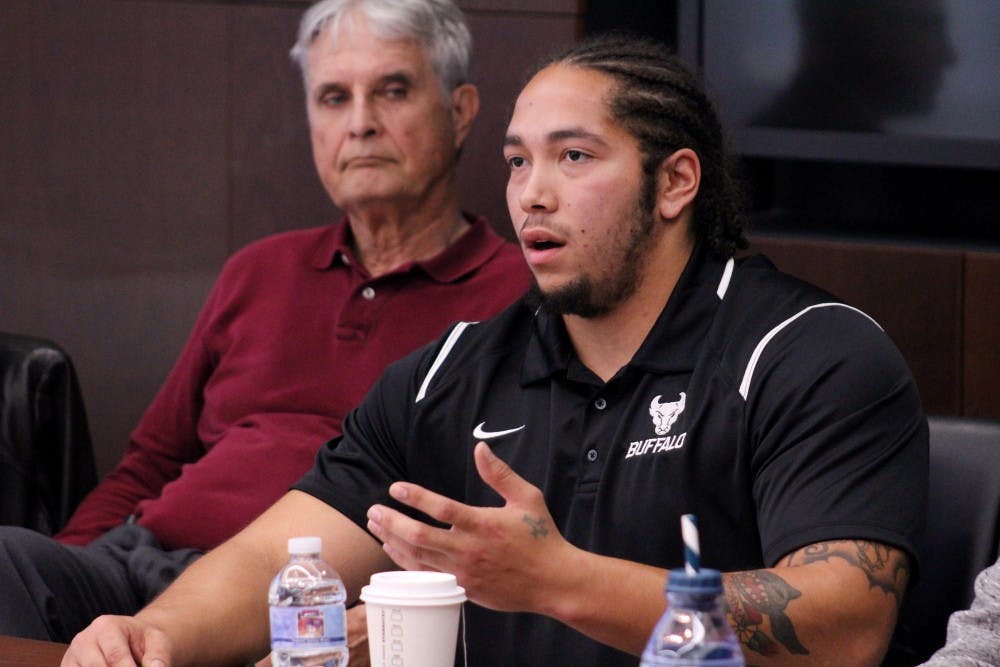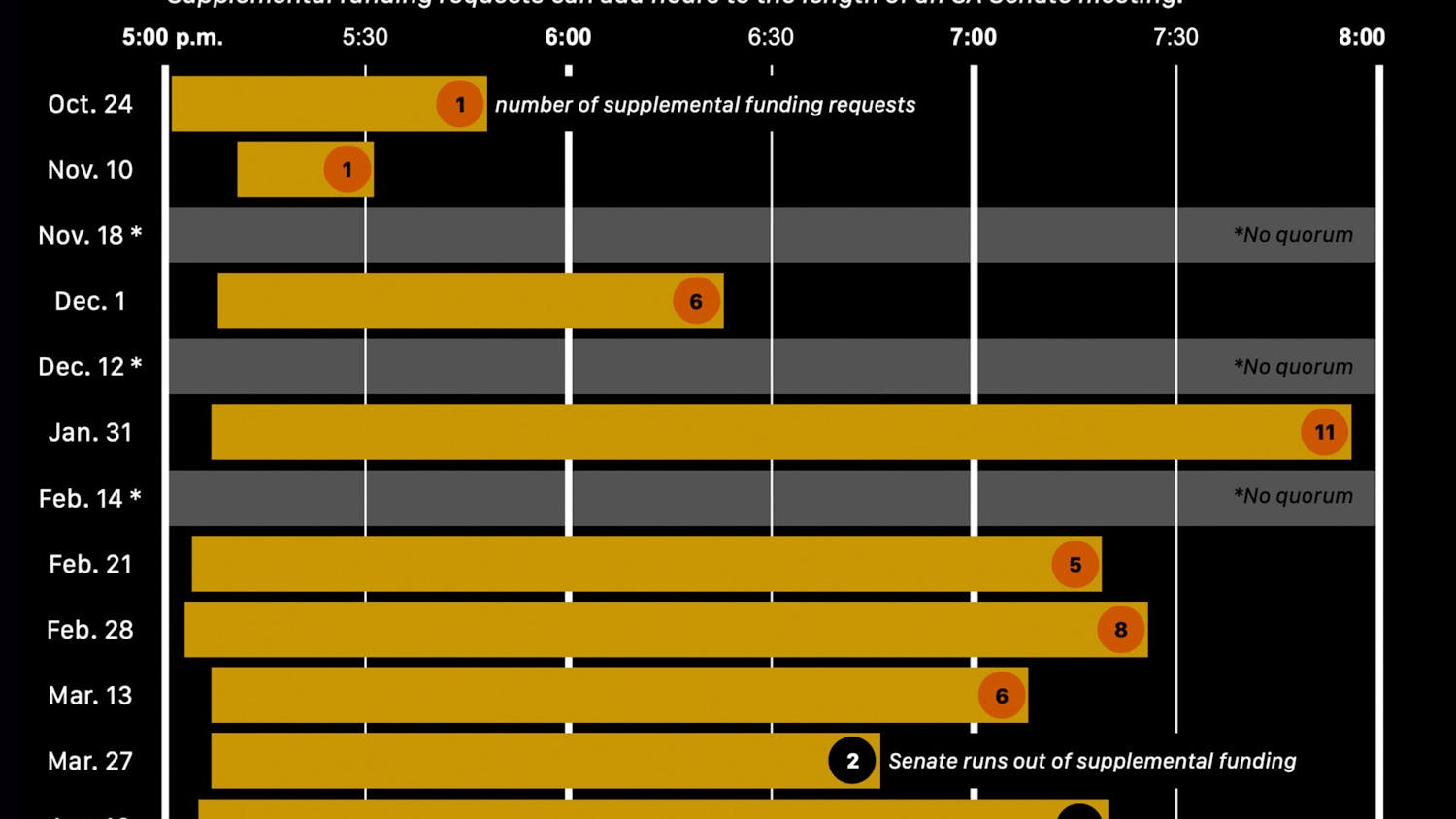Students, athletes, faculty and community leaders came together in UB’s first entry of the Difficult Conversation (DifCon) series this semester. “Taking a Knee and Other Issues of Speech and Expression in Sports” addressed social issues revolving around sports and culture.
Topics included athletes taking a knee during the National Anthem, the use of the N-word in different aspects of culture, team names and mascots that promote Native American racial slurs and student athletes being allowed to voice their beliefs.
Helen “Nellie” Drew, adjunct professor in the Law School and a UB sports law expert, and Kathy Twist, senior associate athletic director, moderated the discussion.
Discussion leaders included: UB law student Michael Schwartz; Devon Patterson, vice president of the Student-Athlete Advisory Committee; James Jarvis, associate counsel; Rhianna Rogers, associate professor of interdisciplinary studies at Empire State College; and Donald Grinde, director of graduate studies in the Department of Transnational Studies.
Explanations for Colin Kaepernick taking a knee and presentations for both sides of the issue appeared throughout the discussion.
The conversation addressed other prevalent racial topics such as the N-word and how it is used within the culture of hip-hop.
The discussion touched on a generational gap between those who do not condone the use of the word and those who use it freely.
“People don’t talk about this stuff, or when you do talk about it, you usually are sitting in a room where people all agree with you,” said sociology professor Jared Strohl. Too often the conversation becomes about what perspective is right and what perspective is wrong. But the more interesting thing is can you be empathetic to someone that thinks differently than you.”
The discussion touched on a generational gap between those who do not condone the use of the word and those who use it freely.
The on-going battle between Native Americans and the use of racial stereotypes and slurs in team names and mascots also came up in discussion.
Grinde educated listeners about the history of Native American culture, the significance behind the racial slurs used in sports and how it can be a damaging experience for Native Americans. He referenced his own son having to compete against a team in high school whose name referred to a Native American slur and how that directly hurt his son and family.
Grinde has been instrumental in the fight against using slurs as team names and mascots, resulting in the elimination of two-thirds of Native American mascots throughout the country.
He discussed how progress was made under former President Obama’s administration toward the removal of racial slurs in sports. Grinde also spoke of how that progress has been tarnished because President Trump finds no issue with such terms.
“If it happens to us, it will happen to other people down the road,” Grinde said.
Devon Patterson, a captain on the men’s track and field team, discussed the freedom of expression student-athletes have at UB and how he has worked closely with UB to ensure athletes continue to express themselves properly.
Patterson has worked with administration and explained reasons for speaking out to ensure student-athletes remain united on issues so as not to protest President Trump, but protesting the root cause that Kaepernick intended, stopping police brutality.
Patterson spoke about encouraging people to learn more about what is going on nationally and the historical context of the social struggles the country is facing.
“Be mindful of others because some people may find it offensive and others do not,” Patterson said.
DifCon allowed the UB community to experience an open discussion, ask questions and become more involved in social topics affecting athletes.
“We don’t get to have these conversations a lot and we are trying to build these off of issues people are currently thinking about,” Stroll said. “To be able to talk about it in real time is pretty cool.”
The next Difcon event called “Cultural Appropriation: Who decides?”will take place Oct. 24 at 6 p.m. in 228 Student Union.
Jeremy Torres is the assistant sports editor and can be reached at jeremy.torres@ubspectrum.com





